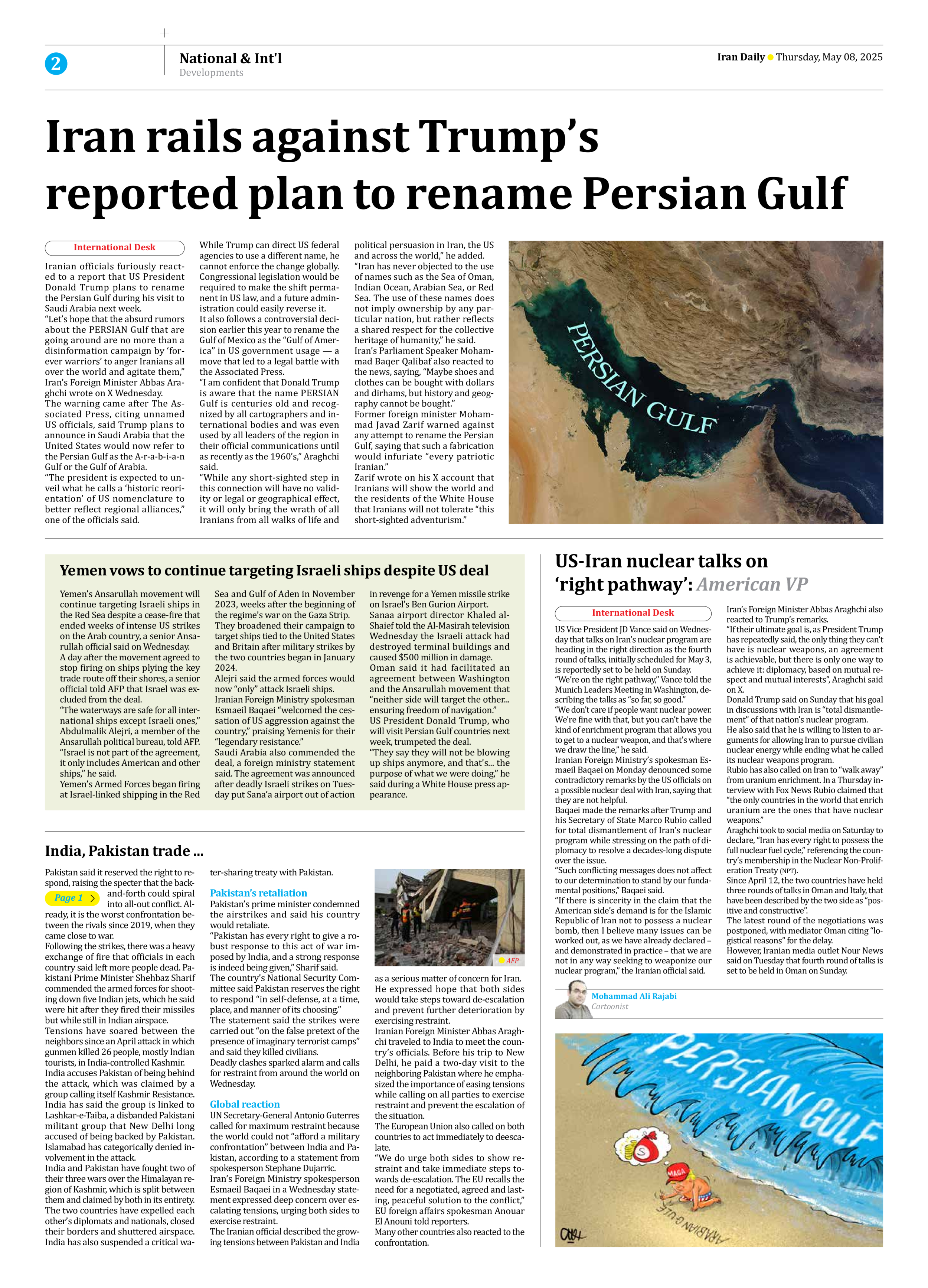
India, Pakistan trade ...
Page 1
Pakistan said it reserved the right to respond, raising the specter that the back-and-forth could spiral into all-out conflict. Already, it is the worst confrontation between the rivals since 2019, when they came close to war.
Following the strikes, there was a heavy exchange of fire that officials in each country said left more people dead. Pakistani Prime Minister Shehbaz Sharif commended the armed forces for shooting down five Indian jets, which he said were hit after they fired their missiles but while still in Indian airspace.
Tensions have soared between the neighbors since an April attack in which gunmen killed 26 people, mostly Indian tourists, in India-controlled Kashmir.
India accuses Pakistan of being behind the attack, which was claimed by a group calling itself Kashmir Resistance. India has said the group is linked to Lashkar-e-Taiba, a disbanded Pakistani militant group that New Delhi long accused of being backed by Pakistan. Islamabad has categorically denied involvement in the attack.
India and Pakistan have fought two of their three wars over the Himalayan region of Kashmir, which is split between them and claimed by both in its entirety.
The two countries have expelled each other’s diplomats and nationals, closed their borders and shuttered airspace. India has also suspended a critical water-sharing treaty with Pakistan.
Pakistan’s retaliation
Pakistan’s prime minister condemned the airstrikes and said his country would retaliate.
“Pakistan has every right to give a robust response to this act of war imposed by India, and a strong response is indeed being given,” Sharif said.
The country’s National Security Committee said Pakistan reserves the right to respond “in self-defense, at a time, place, and manner of its choosing.”
The statement said the strikes were carried out “on the false pretext of the presence of imaginary terrorist camps” and said they killed civilians.
Deadly clashes sparked alarm and calls for restraint from around the world on Wednesday.
Global reaction
UN Secretary-General Antonio Guterres called for maximum restraint because the world could not “afford a military confrontation” between India and Pakistan, according to a statement from spokesperson Stephane Dujarric.
Iran’s Foreign Ministry spokesperson Esmaeil Baqaei in a Wednesday statement expressed deep concern over escalating tensions, urging both sides to exercise restraint.
The Iranian official described the growing tensions between Pakistan and India as a serious matter of concern for Iran.
He expressed hope that both sides would take steps toward de-escalation and prevent further deterioration by exercising restraint.
Iranian Foreign Minister Abbas Araghchi traveled to India to meet the country’s officials. Before his trip to New Delhi, he paid a two-day visit to the neighboring Pakistan where he emphasized the importance of easing tensions while calling on all parties to exercise restraint and prevent the escalation of the situation.
The European Union also called on both countries to act immediately to deescalate.
“We do urge both sides to show restraint and take immediate steps towards de-escalation. The EU recalls the need for a negotiated, agreed and lasting, peaceful solution to the conflict,” EU foreign affairs spokesman Anouar El Anouni told reporters.
Many other countries also reacted to the confrontation.







